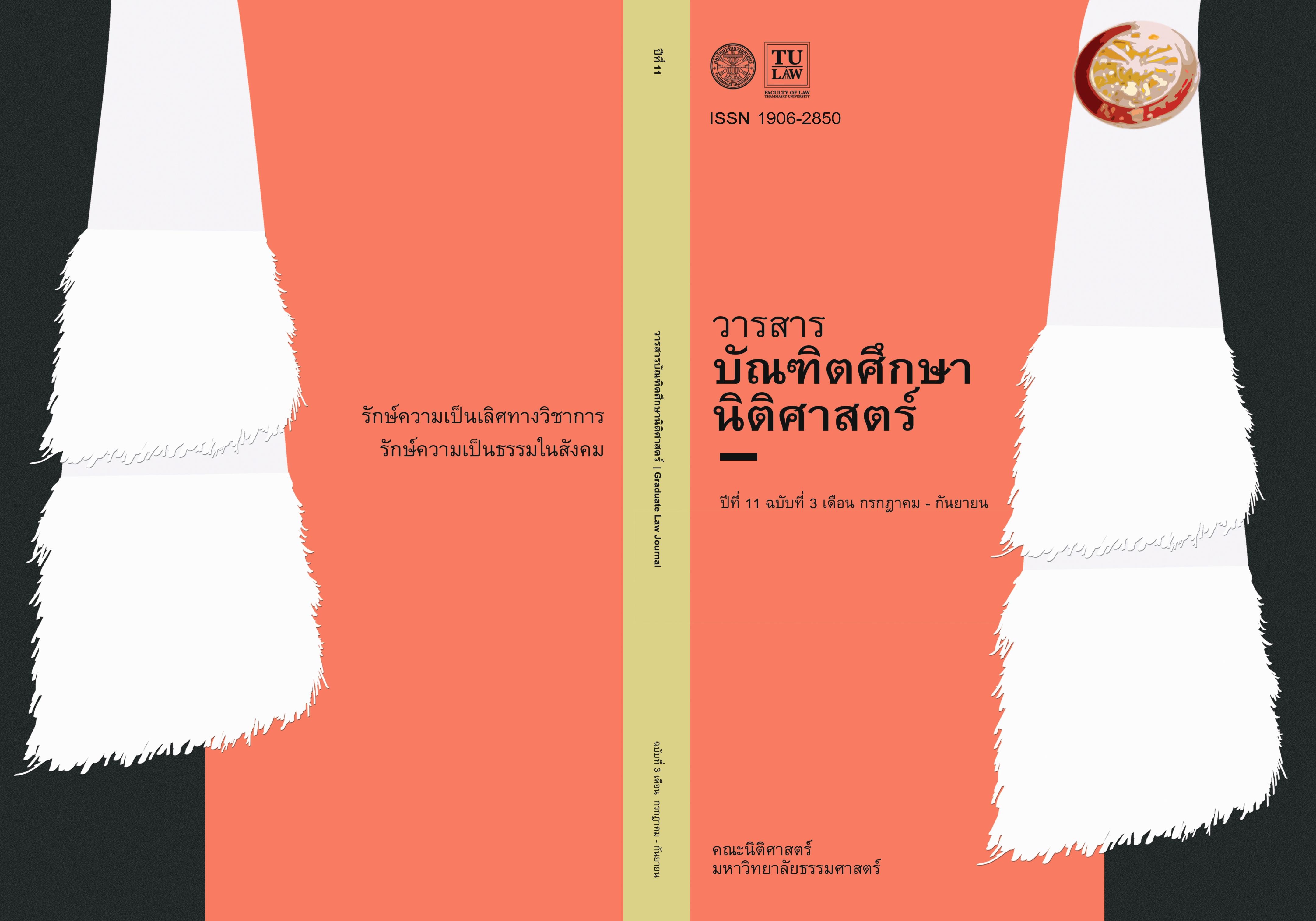CONDITIONS FOR APPLYING PRECAUTIONARY PRINCIPLE UNDER THE AGREEMENT ON THE APPLICATION OF SANITARY AND PHYTOSANITARY MEASURES
Main Article Content
Abstract
Precautionary Principle originally derived from environmental law. It is a principle that aims to protect the environment from dangers which are potentially damage the environment in the future. Due to possible dangers may occur which can be effect severely. Thus, to prevent such dangers, each country may specify measures for preventing these danger or damage as provisionally: Provisional Measures, although at the time, there was no scientific proof to support specifying measures were insufficient. Then, the concept was grown that these principles should be applied with specifying sanitary measures to protect consumers to be safety from risky food which dangerous as well. But the perspectives on safe terms are different, there are often problems in interpretation on Precautionary Principle. It makes WTO have to interpret and define conditions more clearly to be a norm to consist with the changing circumstances
Article Details
บทความหรือข้อความคิดเห็นใด ๆ ที่ปรากฏในวารสารบัณฑิตศึกษานิติศาสตร์เป็นวรรณกรรมของผู้เขียนโดยเฉพาะคณะนิติศาสตร์ มหาวิทยาลัยธรรมศาสตร์ และบรรณาธิการไม่จำเป็นต้องเห็นด้วย
References
บัณฑิตา พิชญากร. รายงานการศึกษาฉบับสมบูรณ์ “ผลกระทบกรณี EC Biotech Case ต่อระบบกฎหมายว่าด้วยการควบคุมความปลอดภัยชีวภาพ.” ดำเนินงานโดย โครงการหน่วยจัดการความรู้ด้านการค้าและสิ่งแวดล้อมในสถานการณ์สากล สนับสนุนโดย สำนักงานกองทุนสนับสนุนการวิจัย (สกว.), สิงหาคม 2549.
BOOKS
Daniel M Byrd III and C Richard Cotheren. Introduction to Risk Analysis: A Systemic Approach to Science-based Decision-making, 2005.
Joanne Scott. The WTO agreement on sanitary and phytosanitary measures : a commentary. OUP Catalogue, 2009.
Lukasz Gruszczynski. Regulating Health and Environmental Risks under WTO Law. New York : Oxford University Press, 2010.

